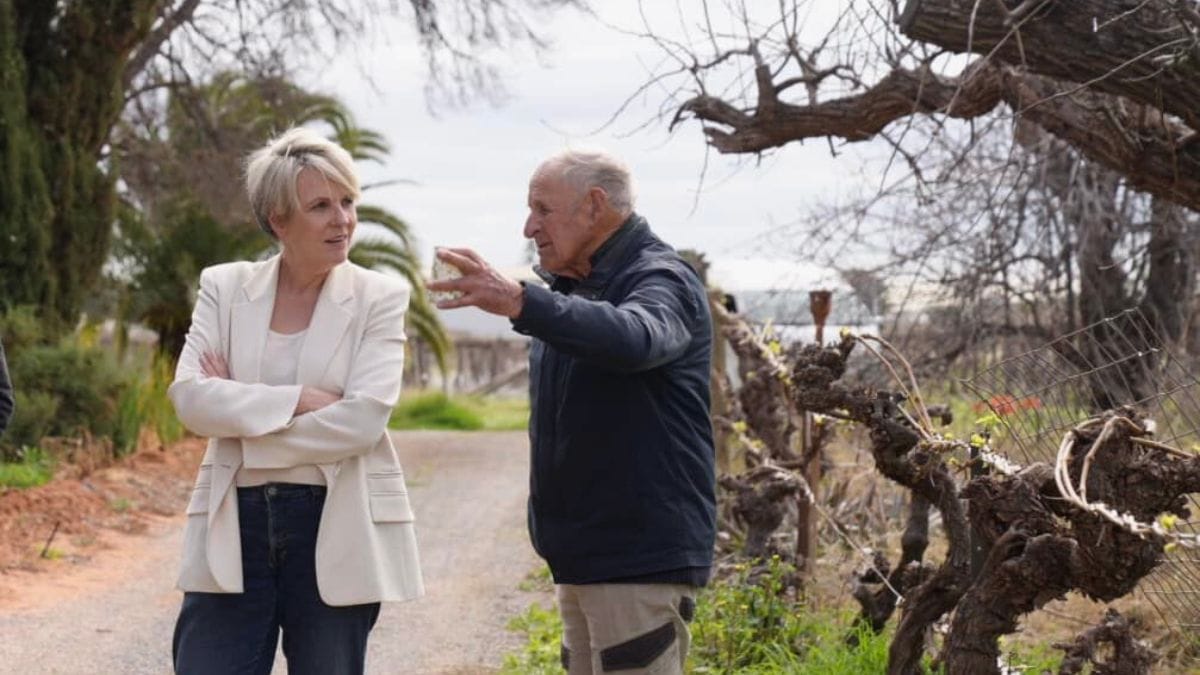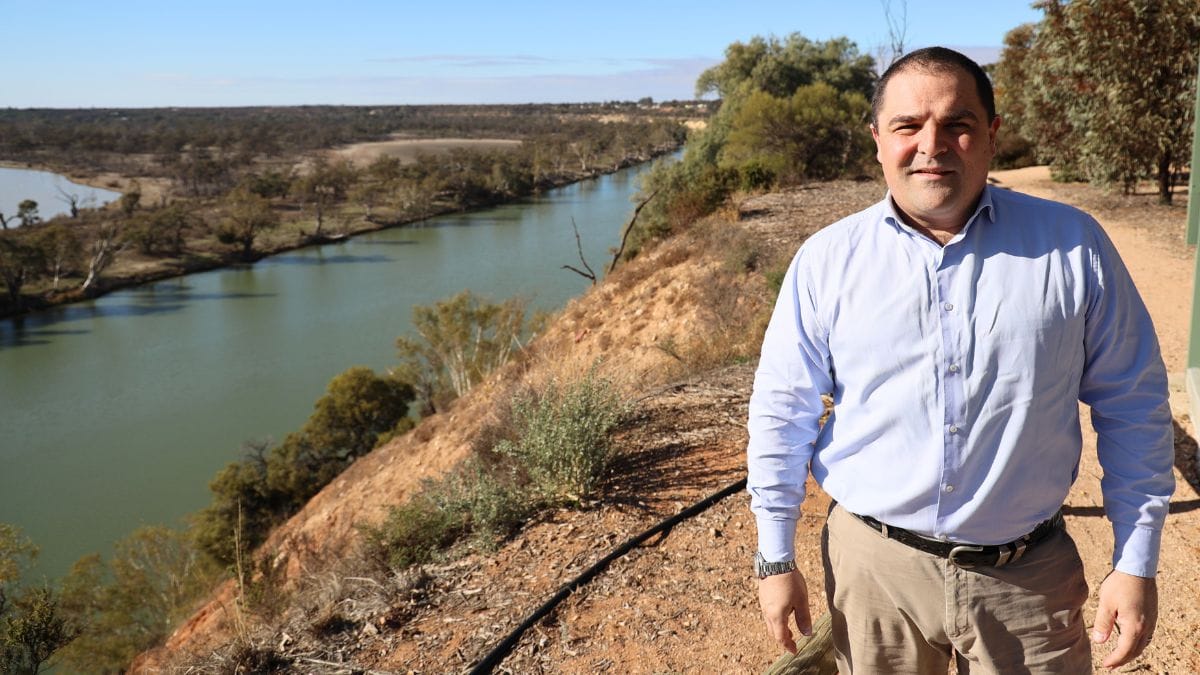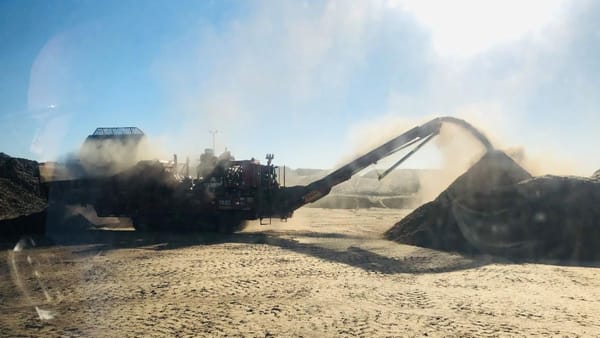Lower Murray irrigators aren’t rushing to access water buybacks
Higher water prices and reduced agricultural production would be the likely trade-off for water savings in the Murray-Darling Basin, a report has found.

This story is now free to read. Help Murray Bridge News tell more stories like this by subscribing today.
Few local irrigators have yet expressed an interest in selling water to the federal government as part of a buyback program, a leading local irrigator says.
Richard Reedy, the deputy chair of South Australian Murray Irrigators, said lots of people were sitting on the fence about a federal government offer to buy back irrigators' water licences to benefit the environment.
He estimated that only about 10 per cent of farmers in the area were seriously interested in selling their water rights.
"Most of those are small farmers who are in dire financial restraints," he said.
"It's the older generation with 20-acre blocks who can't afford to maintain their property ... rather than being self-sufficient, they'll move to the pension.
"It's going to be a very interesting space going forward because we've really, in the area of efficiency programs, whipped that horse to death.
"I consider it one of the most challenging chapters (for the River Murray)."
The government opened tenders to buy water last month as part of the Murray-Darling Basin Plan, which aims to return 450 gigalitres of water to the environment by December 2027.
The Federal Government said the additional 450 GL of water was necessary to ensure the health of the river system in the face of a drying climate.
At the start of June 2024, 27.5GL had been recovered towards the 450GL goal, largely through off-farm irrigation infrastructure upgrades.
Local irrigators had been fairly insulated until now, Mr Reedy suggested, but the push for 450GL might change that – "it's a lot of water they're looking for".
"We need a good handle on who's in and who's out so that we can see what impact it might have on the rest of the community," he said.
Water savings would have consequences, ABARES finds
Water buybacks by the federal government would save water, but could lead to price rises of average water allocation and an $111 million per year downturn in agricultural production, according to the Australian Bureau of Agricultural and Resource Economics and Sciences (ABARES).
A recent ABARES report modelled the likely impact of buybacks on irrigated agriculture.
Three buyback scenarios were investigated in the southern Murray-Darling Basin, with recovery volumes of 125GL, 225GL, and 325GL.
The report predicted that:
- Water allocation prices will increase: Buybacks would reduce the supply of water available for irrigation, increasing prices. In the 225GL scenario, average water prices across the southern were estimated to increase by $45/megalitre, or 10%. Sellers of water allocations would benefit from increased revenue, while buyers would face higher costs.
- Water use will decrease: Higher prices would reduce water use. In the 225GL scenario, water use across the southern MDB would decrease by an estimated 133GL/year, or four per cent. The reduction in average water use might be less than the 225GL to be recovered for several reasons, including future climate assumptions, substitution to other sources of water, and changes in irrigators' use of carryover provisions. In percentage terms, water use would likely decrease the most for rice growers (8%) and pastoralists (6%), and least for almond growers (0.2%) and other horticulturalists (1%).
- Production value will decrease a little: Lower water would reduce the gross value of irrigated agricultural production. In the scenario of 225GL worth of buybacks, the value of irrigated production in the southern Murray-Darling Basin would be projected to drop by $111 million per year, a 2% decrease. The decrease would be greatest for rice (9%), and least for almonds (0%) and other horticulture (1%). While changes in the value of irrigated production can provide an indication of the potential flow on effects to regionals communities it is not a reliable measure of overall impacts buybacks may have.

Buybacks plan is confusing, ludicrous, opposition MPs say
Tanya Plibersek, the federal Minister for the Environment and Water, said the government would continue to prioritise non-purchase options to recover water, such as water saving infrastructure.
The other two primary recovery methods would be the River Resilience Water Infrastructure Program, which will reduce water losses to things like evaporation and leaks, and the Sustainable Communities Program, which will help river towns pivot to less industries which don't need as much water.
“(We) are supporting basin communities that may feel the impacts of water recovery with a $300 million investment," she said.
“Not only will regional communities prosper when the Murray-Darling Basin river system is healthy, we all will."
But federal MP Tony Pasin described the buyback plan as "confusing and opaque".
Organisations including the Australian Local Government Association had called on the government to scrap buybacks and take a community-led approach to water recovery instead.
Nicola Centofanti, the state opposition's water spokeswoman, said it was unfair that South Australian irrigators would have to contribute to water recovery through buybacks, since they had already saved more than their fair share of water over the years.
Farmers were doing it tough already, and the spectre of buybacks would add to their anxiety, she said.
She also criticised the idea that irrigators who expressed an interest in selling water to the government would be forced to hold onto their allocations over the summer, instead of selling any water they didn't need, while they waited to hear if their offer had been accepted.
“This is akin to (the federal government) buying houses with an eight-month long settlement but blocking the current owners from renting the home out in the meantime,” she said.
“It's ludicrous.”
- More information: Visit www.mdba.gov.au, read the ABARES report at www.agriculture.gov.au or connect with SA Murray Irrigators at sami.asn.au.
- Contact the author: Email liana@murraybridge.news.
- Read more: Water buybacks won't make groceries more expensive, Tanya Plibersek says






